CE and PE in stock market are option trading terms, CE means Call Option and PE means Put Option. The complete concept will be explained with examples further.
In this article we have explained CE and PE in the stock market in detail, before diving into the concept of CE and PE, let’s understand the basics of Options trading.
Options trading is a confusing segment in the investing world, even for people with a finance background. There are various technical terms like ‘CE’, ‘PE’, ‘lot size’, ‘Strike price’, and the rest which one needs to understand before making money out of it.
It is a segment where investors believe that money can be made quickly. But it is also the same area where one loss is enough to wipe out all the invested capital. What inspires people is the rags-to-riches story they have heard of.
But they forget that there are more riches-to-rags stories rather than the other way around. Hence before jumping into the world of options trading, terms like CE and PE need to be thoroughly understood. In this article, we’ll understand the same.
Something on option premiums and the strike price
Premium is the money required to be paid by the option buyer to the option seller/writer. Against the premium payment, the option buyer buys the right to exercise his desire to buy (or sell in case of put options) the asset at the strike price upon expiry. Option premiums play an extremely crucial role when it comes to trading options.
The strike price is the price at which the option buyer will buy the share prior to or at the expiry of the contract. And the opposite is the case with option sellers.
Also Check: Best books for stock market
What is CE in the stock market?
CE is the short form of the Call option. More precisely, it is known as Call European. These types of investment contracts provide the option investor the right, but not the obligation, to purchase a stock, bond, product, or any other asset at a pre-determined coast within a certain time period.
When the value of these underlying assets rise, the call buyer gains. In short, buying a call option on security will give the investor a choice to buy a fixed number of shares of that company at a fixed price (known as the strike price) before a particular date (known as the expiry date).
A call option holder is bullish on his position and will benefit from his position when the share price rises above the strike price.
Example of a Call option
You buy a call option on Reliance Industries Limited with a strike price of ₹1990 at a moment when the current price is ₹1970. Since the call option was quoted at ₹20, you’ll have to shell out a premium of ₹20 per share, or ₹5000 (20*250).
Now, if in the cash market, the value of Reliance shares reaches ₹2110/share, you will start reaping profits.
You may also like:
What is PE in the stock market?
PE is the short form of Put Option. It is specifically known as Put European. A put option is a contract that gives the holder of the option the privilege but not the commitment, to sell the security at a specific price (strike price) within a certain time period.
A put option is the exact opposite of a call option. There can never be a transaction without either a buyer or a seller. In a similar manner, investors can’t buy call options without similar put options being offered.
A put option holder is bearish on the share value and will benefit from his position when the share price goes below the strike price.
Example of a Put option
Consider the same example we took with regards to the call option.
You buy a put option on Reliance Industries Limited with a strike price of ₹1990 at a moment when the current price is ₹2130. Since the call option was quoted at ₹20, you’ll have to pay a premium of ₹20 per share, or ₹5000 (20*250).
Now, if in the cash market, the value of Reliance shares reaches below ₹1970/share, you will start reaping profits.
Also Check:
Best Mediums for CE and PE Calls
There are multiple sources where you can get calls on F&O, But you should be very careful while considering these calls, enter the trade on your own risk, do your own analysis as well before setting up any F&O trading, In F&O most traded options are Nifty and Bank Nifty.
Here are the list of mediums
- TV Channel – ZeeBusiness (Cash ka Option), (Basin ka haseen shares)
- Telegram Groups – There are multiple telegram group , one recommended channel is “ENGINEERS OF STOCKMARKET“
How to do Options Trading in Upstox?
There are multiple stock trading platforms to do CE and PE trading, we will be explaining you how to do options trading in Upstox.
Step 1: Open the Upstox app and navigate to “Search” Icon at left top corner.
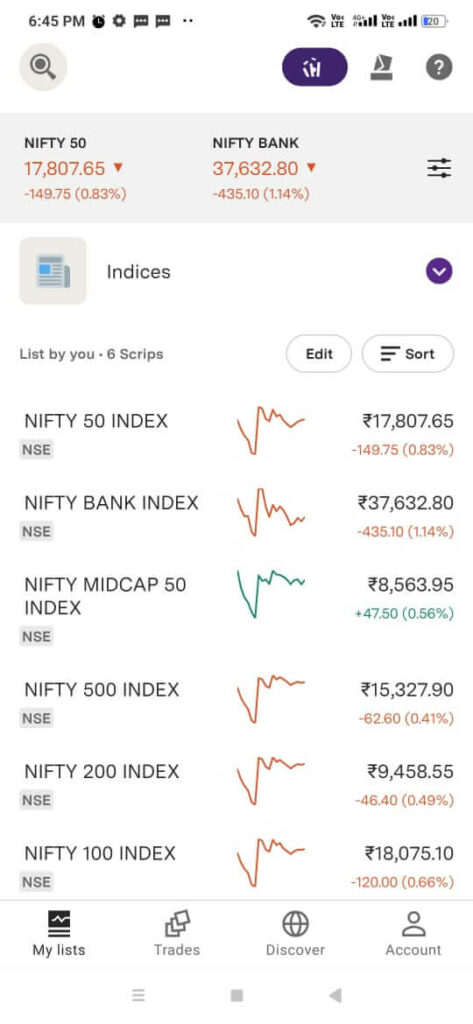
Step 2: Navigate to F&O menu

Step 3: Navigate to F&O menu and type desired Indices or stocks to trade, with desired CE and PE select any one.
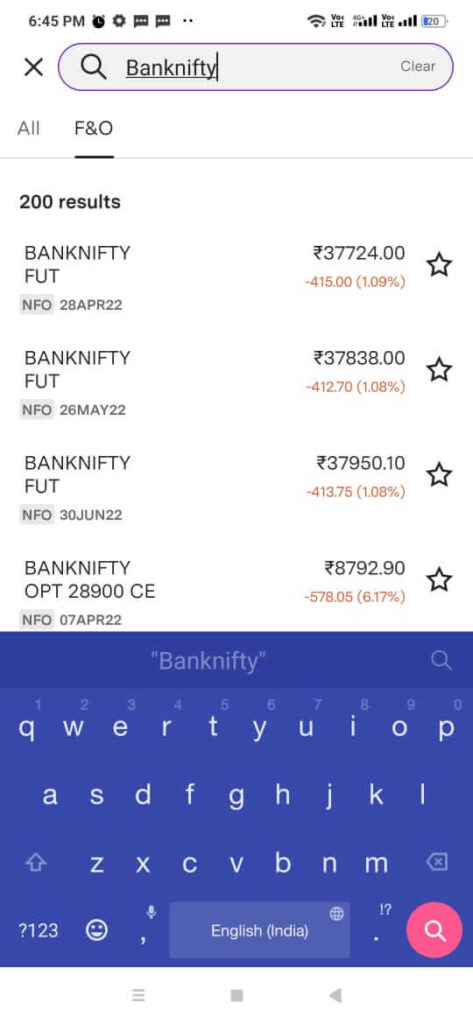
Step 4: Now select any option “Buy” or “Sell”
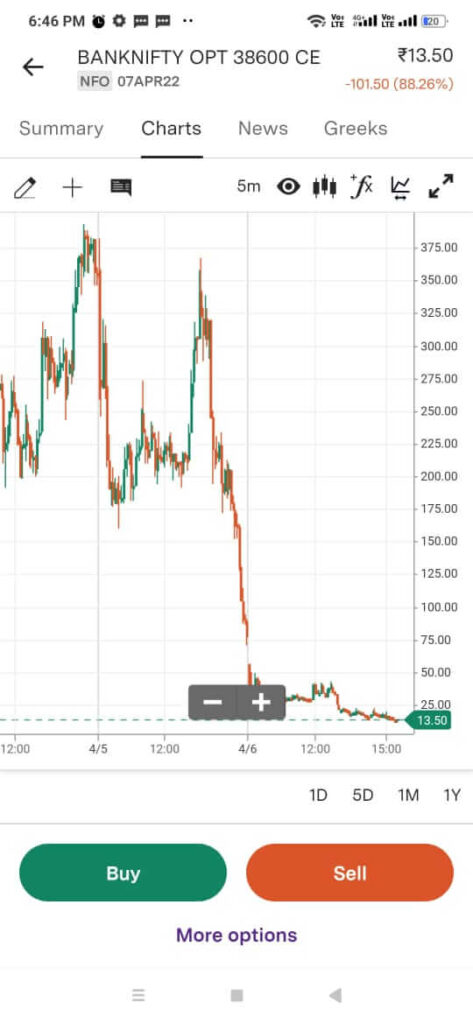
Step 5: Now you need select 1 lot or more, minimum quantity to be traded will be mentioned in that field, we recommend, since you are beginner select 1 lot and start trading and click on “Review” button.
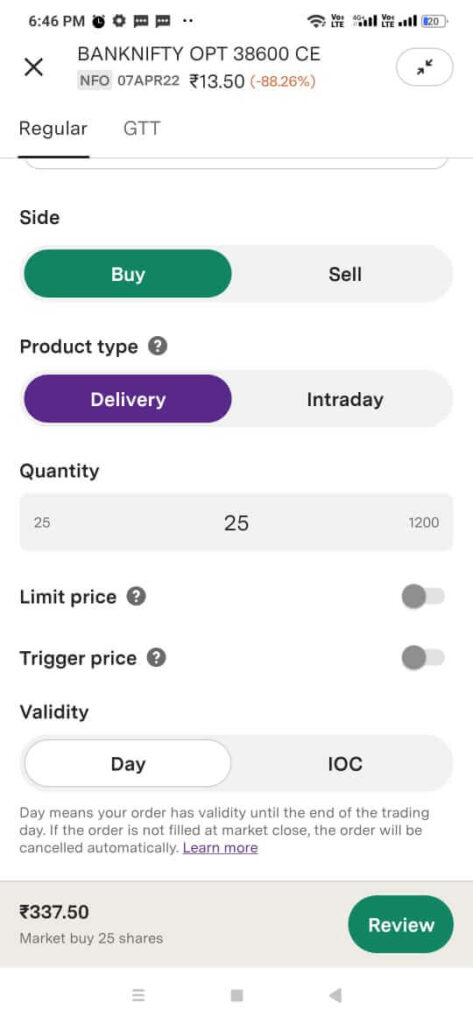
Step 6: Once you click on “Review” button in the next screen you need to confirm the order by swiping the “Swipe to schedule order“

You can also do options trading with other trading apps as well, you can choose from the list.
Strategies for Using CE and PE
Options trading is becoming more popular in India, with traders employing a variety of strategies to profit. In this section, we will look at three popular call and put option strategies: hedging, speculating, and income generation, as well as a real-world example from the Indian stock market.
1. Hedging
Hedging is a trading strategy that traders use to limit their potential losses. Assume a trader owns 100 shares of Infosys and is concerned about a possible market downturn. In that case, the trader could protect himself by purchasing a put option on Infosys’ stock.
If the stock price falls below the strike price of the put option, the trader can exercise the option and sell the shares at the higher strike price, thereby limiting his or her losses.
2. Speculating
Speculating is a high-risk, high-reward strategy that involves buying or selling an asset based on a market forecast or prediction.
Assume a trader believes that the value of Tata Steel’s stock will rise in the coming weeks. In that case, the trader could purchase a call option on Tata Steel’s stock, which would allow them to profit if the stock price rose above the option’s strike price.
3. Income Generation
Income generation is a popular option trading strategy that involves writing call and put options in order to profit from the premiums. Assume a trader writes a call option on Hindustan Unilever stock with a strike price of ₹2500 and a one-month expiration date.
If the stock price remains below ₹2500 until the expiration date, the trader maintains the premium and profits from the trade.
Example
Let’s look at a real-world example of using call and put options to generate income. Assume a trader owns 500 shares of Reliance Industries and is optimistic about the stock’s long-term prospects while being concerned about potential short-term market fluctuations. The trader could then sell a covered call option on Reliance’s stock. The trader would sell a call option with a strike price greater than the stock’s current market price and receive a premium from the option buyer. The trader keeps the premium and retains ownership of the stock if the stock price remains below the strike price until the expiration date.
If the stock price rises above the strike price, the trader would have to sell the shares at the higher price, but still earn a profit from the sale and the premium received from the option buyer.
Some basic yet important pointers to consider while trading in options
- Buy a call option or sell a put option only when you expect the market to go up.
- Buy a put option or sell a call option only when you expect the market to go down.
- The buyer of an option has unlimited profit potential and limited risk (to the extent of the premium paid).
- The seller of an option has an unlimited risk potential and limited reward (to the extent of the premium received).
- Majority of options traders prefer to trade options only to capture the variation in premiums.
- Option premiums tend to gyrate drastically – as an options trader, and you can expect this to happen quite frequently.
Conclusion
Discussed above were some of the important terminologies that one needs to know before diving deep in the world of options. While loads of money can be made by trading in options, it is not as easy as it looks.
In a recent interview, the founder of Zerodha, Mr Nithin Kamath revealed that less than 1% of the active traders present on Zerodha earn FD beating returns. This means the rest 99% did not even earn what is given by FDs.
Keeping this in mind, one should trade cautiously.
You may also be interested in
Open a FREE Demat Account and Start your CE and PE Trading
Open FREE Demat Account
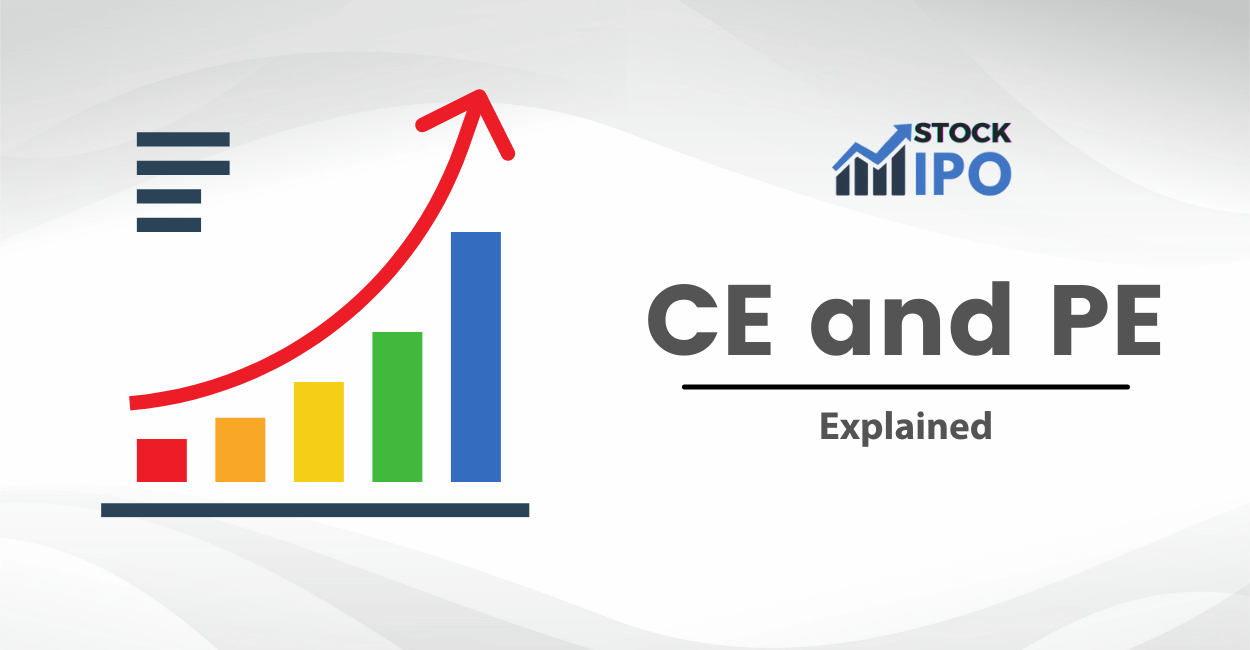

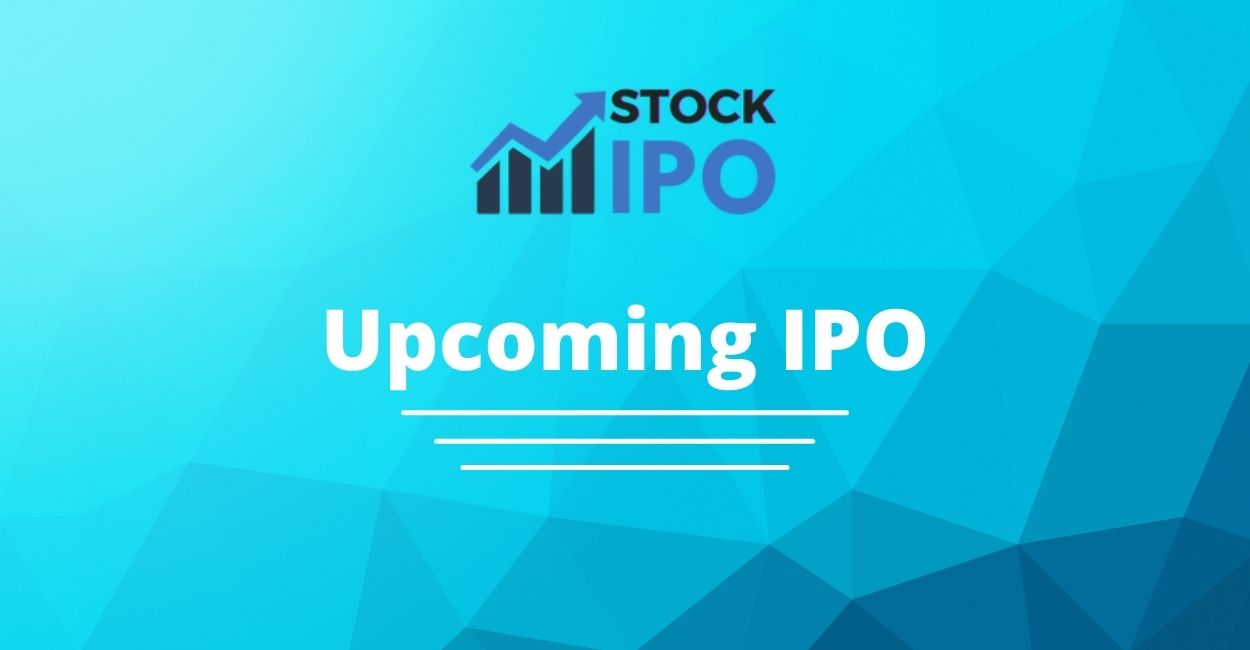
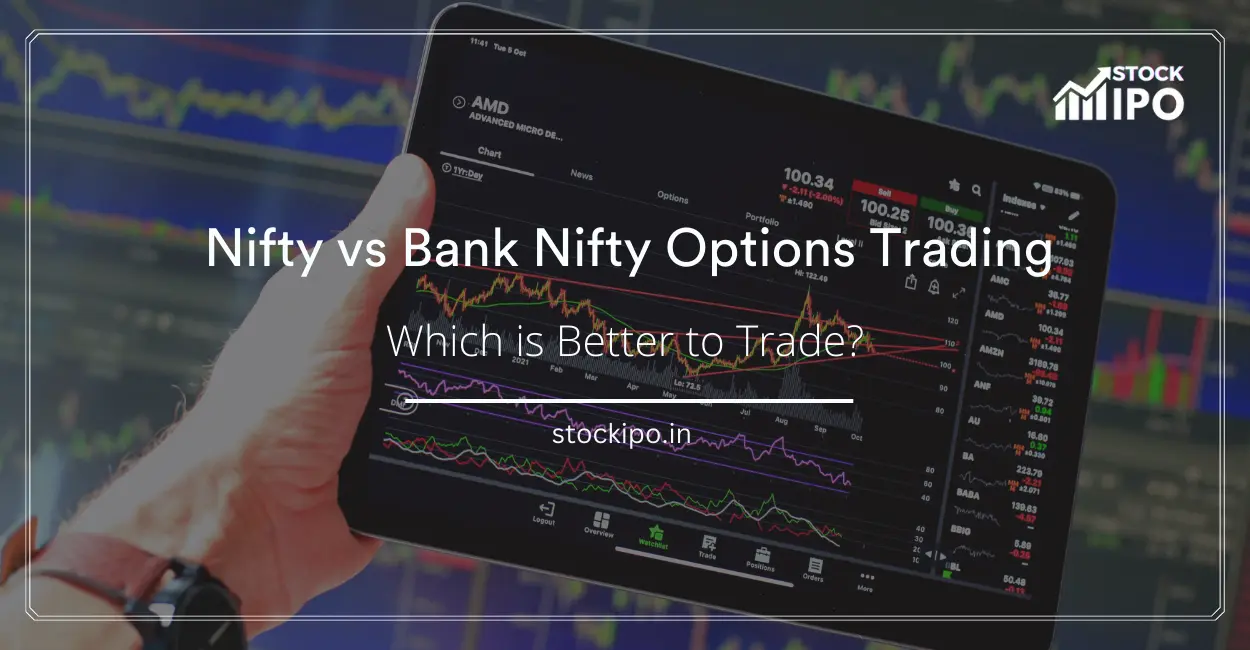


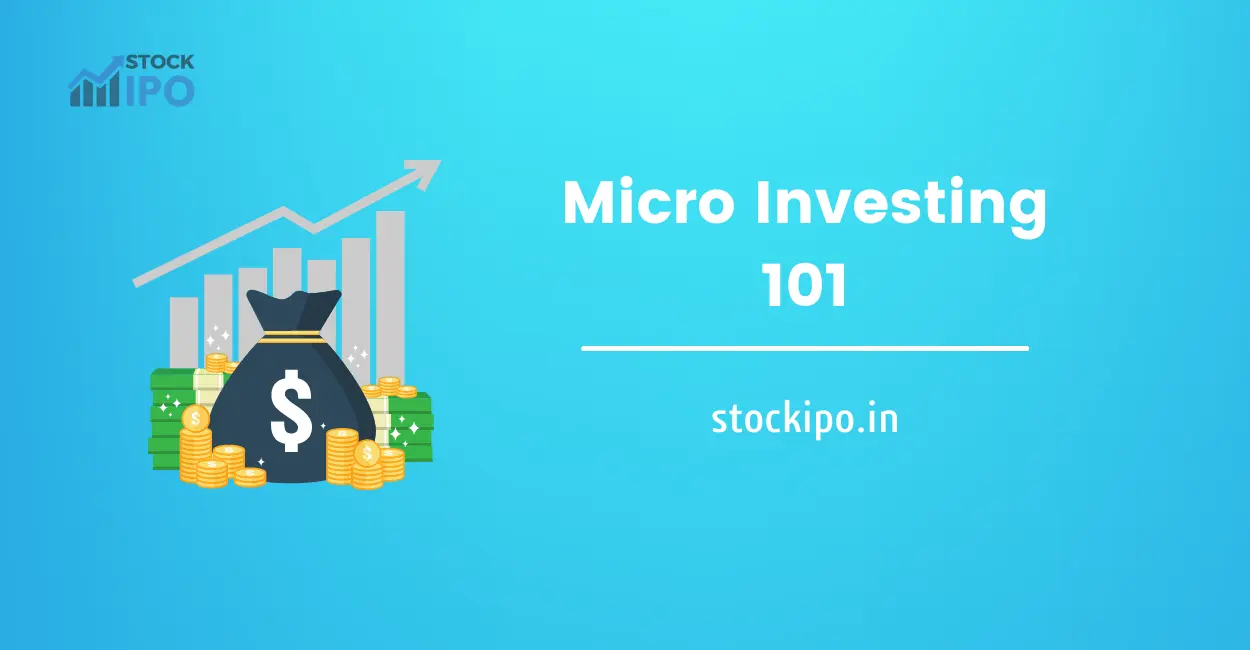
Thanks for sharing this clear my all doubts
Hi,
Thanks for the article.
All my doubts are clear now.
Which stock option is good for beginner trader? Nifty50 or Banknift?
Both are good, its just that before entering the stock options you need to learn things properly
I have seen some of the experts like Ashmita Patel doing free webinar on Options Master classes on BankNifty, Is it good?
Enroll at your own risk, we cannot comment on that , Thanks
Thanks for your good information. i have found no where this information!
Thanks Venkatesh, this means alot
Sir, I have taken UBL 28 July 2022 CE 1620 @50.90 on 12/7/2022 under lot size 400, on 11/7 and 12/7 price didn’t exceed above rate, so couldn’t book profit. Now I want to sell it even at cost price. Sir what is the future of this CE call
I was looking into the chart pattern of UBL, and I could see a strong chart pattern and its uptrend, and if I see the day chart it’s still in the resistance, wait for a breakout at 1680 and then trade, only if the market is bullish.
Hello.
Nice explanation. I have been following Rachnaji for a long time.
Just one doubt where you have mentioned the ‘Example of a Put option’. Shouldn’t this be Put option? It says -“You buy a call option on Reliance Industries Limited with a strike price of ₹1990 at a moment when the current price is ₹2130. Since the call option was quoted at ₹20, you’ll have to pay a premium of ₹20 per share, or ₹5000 (20*250).”
Please clarify.
Thank you
Thanks for pointing out this error, we have fixed the issue, it should be “you buy a put option” instead of “call option”
In quora i have seen multiple spaces talk about CE and PE, this article is best
Thanks alot
This is a next level article, your detailed explanation is commendable.
Well explained Call option and put option, I understood this concept completely
What happens if we hold the CE for longer period?
It depends on the expiry of the options, make sure you see the expiry date, that is the time period where you need to square off your stock or indices
I came across this article, and I have never seen such a detailed explanation on CE and PE, really appreciated
Are there any CE and PE Trading telegram groups, quora or any community where they give accurate signals?
There are multiple social media channels and community like trading hub, engineers of stock market etc., but do your own research before starting trading activity.
CE and PE is something I will not consider any beginners to start using this feature.
Its very risky to do call option and put option
Can we hold our Call Option for longer term?
Yes you can but make sure that you see the expiry date of Call option.
Can you also please explain how to do ce and pe in zerodha?
Really good , well explained. The concept is easier to understand, keep writing these informative stuff.
Thank you so much
I always had a doubt in these CE PE concept, your article cleared my all the doubts, thank you so much
We are glad that this article cleared all your doubts